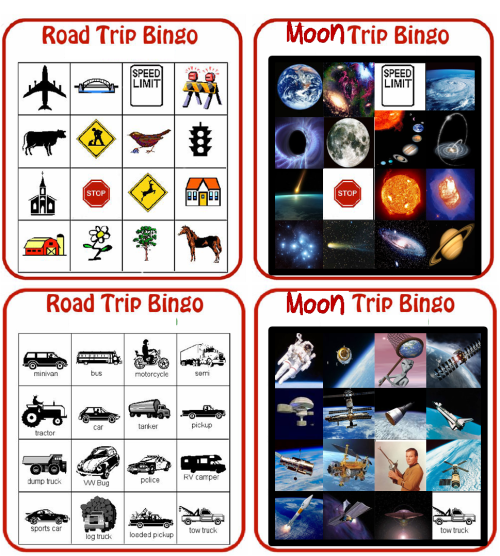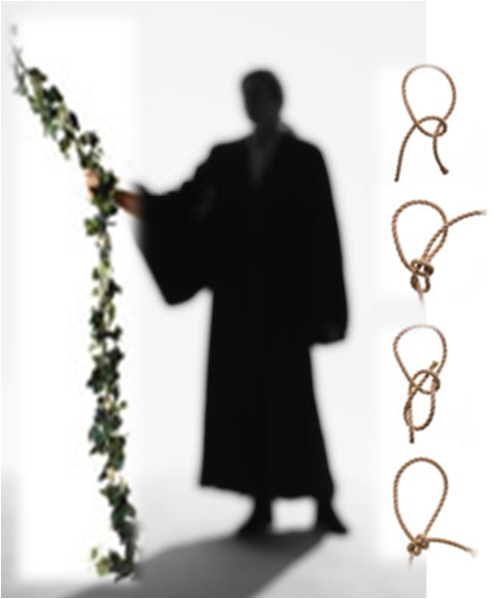Here’s an interesting People Magazine news headline:
“Kendra Wilkinson Goes Baby Shopping”
(click here for the real story)
What comes to your mind?
Here’s what came to ours:

Posted in General, GrammarGag Reel (fun stuff), tagged baby, baby shopping, confusion, English, fun, grammar, headline, Kendra Wilkinson, language, magazine, news, People Magazine, usage, words, writing on July 18, 2009| 1 Comment »
Here’s an interesting People Magazine news headline:
“Kendra Wilkinson Goes Baby Shopping”
(click here for the real story)
What comes to your mind?
Here’s what came to ours:

Posted in General, GrammarGarnish (wordplay), tagged Attorney General, Attornies General, Bride of Chucky, brother-in-law, compound, confusion, correct, daddy longlegs, editing, email, English, fun, gin and tonic, grammar, harvestman, harvestmen, language, maid of honor, man-of-war, men-of-war, modifier, movie, normal, notaries public, notray public, nouns, plural, plurality, pluralizing, question, tv, twitter, usage, words, writing on July 18, 2009| 11 Comments »
Updated post:
Compounds plural or compound plurals? That is the question …
We were already compiling a few notes about the “art of pluralizing” when we got a rash of input (from TV, Twitter, and email) about the plurals of compound nouns, specifically those compound nouns consisting of a noun plus a modifier.
We’re taking our best shots here, so please feel free to disagree or otherwise comment.
In question:
daddy longlegs – conventional wisdom would lead us to the plural form of: daddies longlegs, however, since that is cumbersome, we suggest: Harvestmen
Attorney General – no question about this one: Attorneys General
gin and tonic – conventional wisdom (gins and tonic) again loses out here (we defer to ironic1.com for this one ): gin and tonics

notary public – not much question with this one: notaries public
brother-in-law – consistent formation found for this plural: brothers-in-law
maid of honor – 1) for more than one honor: maid of honors; 2) for more than one wedding attendant: maids of honor (please, only one MOH per wedding); for more than one copy of the movie Made of Honor: we suggest DVDs.

man-of-war – encounter one and there are likely more on the beach or in the water: men-of-war
Bride of Chucky – ok, so are you talking about the plural of Chucky’s mates or the number of movies … or, even, the possessive? For our purposes here, today: Brides of Chucky
Good, now we’re getting more input. In a recent Twitter conversation:
@NeillShenton to @GrammarCops “ok, what about multiple spoons full of something? Plural* me that – i’d rather rephrase a sentence than type THAT ugly word.”
* We’re now adding “plural” to our list of Nouns gone bad … Thanks!
@GrammarCops to @NeillShenton “Good one … it’s actually one word ‘spoonfuls.'”

There are likely hundreds of such examples. Please contribute.
Posted in General, GrammarGag Reel (fun stuff), tagged confusion, dance, English, fun, grammar, headline, Judge, kabuki, language, news, newspaper, selection, Sonia Sotomayor, supreme court, usage, Wall Street Journal, words, writing on July 17, 2009| Leave a Comment »
More fun with headlines …
Today, The Wall Street Journal ran this news headline:
“The Supreme Court Kabuki Dance: The ritual of choosing a justice has a long history of fictions and evasions“
(click here for the real story)
What comes to your mind?
Here’s what came to ours:

Posted in General, GrammarGag Reel (fun stuff), tagged confusion, debate, English, fun, grammar, headline, healthcare, issue, language, news, Newsweek, Ted Kennedy, twitter, usage, weigh in, words, writing on July 17, 2009| Leave a Comment »
It’s Friday afternoon. It’s time for some fun with headlines to finish out the week.
This one came from Twitter … @Newsweek posted this:
“Absent from the health-care debate, Ted Kennedy will weigh in tomorrow with a Newsweek story…”
(click here for the real story)
What comes to your mind?
Here’s what came to ours:

Posted in General, GrammarGag Reel (fun stuff), tagged 1069, 2009, 40, alien, anniversary, Apollo 11, asteroid, astronaut, bingo, black hole, Captain Kirk, comet, countries, country, Earth, English, fun, galaxy, grammar, headline, Hubble Telescope, hurricane, July 20, language, license, meteor, milky way, Moon, nebula, news, plate, rocket launch, satellites (3), saturn, solar system, space, space capsule, space explorer, space shuttle, space station, space vehicle, spacecraft, speed limit, stars, stop sign, sun, To The Moon, tow truck, UFO, United States, usage, Web, Webb Telescope, wired, words, years on July 17, 2009| 1 Comment »
Since we were around to see the Apollo 11 Moon Mission 40 years ago, we’re following the coverage of its anniversary with piqued interest. What exciting times to be alive!
We came across a great headline today, from wired.com:
“Things to Do on the Way to the Moon”
(click here for the real story)
What comes to your mind?
Here’s what came to ours:
And, not just any road trip … the ultimate. So, to avoid the almost inevitable “Are we there yet?” the astronauts should have some games to play and songs to sing along the way, don’t you think?
Here are a few items we put together for their entertainment …
To start, a scavenger hunt of sorts …

Next, what about a new twist on an old favorite …

And, to round out the trip, there must be a theme song. We thought this might be appropriate …

As a bonus, we started building a soundtrack for the journey. Our initial thoughts …
Now those tunes ought to keep you entertained for a while. Enjoy!
Sources: Wiki – List of space agencies, Mom’s Minivan, License Plate Mania, License Plates of the World, Our iTunes Collection
Posted in General, GrammarGripes (pet peeves), Tips, Vocabulary Builders, tagged @GrammarCops, computer, confusion, critics, dictionary, English, grammar, have no use for, language, learn, make use of, noun, object, of no use, origin, pet peeve, put to use, tweet, twitter, usage, usage note, use, use up, use vs. utilize, used, useful, utilize, utilized, verb, vocabulary, what's the use, words, writing on July 16, 2009| Leave a Comment »
Today there is lots of buzz around usage of use vs. utilize. What fodder for us!
The tweets (from Twitter) that got us started …
@phoefling to @GrammarCops: “*grammar rant* Whatever happened to the word ‘long’? A perfectly good word that’s been replaced by ‘lengthy’. Yuck!”
@Ms_Austen to @GrammarCops: “your description of ‘long’ similar applies to the word ‘use,’ a perfectly good word often replaced by ‘utilize.'”
@mightyredpen to @GrammarCops: “Up there with perfectly good word ‘use‘ being replaced by ‘utilize.’ Ugh.”
@mattimago (a Grammar Police Deputy) to @GrammarCops: “Utilise vs. use: I fully intend (split infinitive!) to utilise any pertinent points you post. I have no use for poor grammar.”
Then, the topic quickly turned to split infinitives … (upon which we shall dutifully follow-up and utilize in a future post). he he
@ChristinaGayle to @GrammarCops: “I like to use split infinitives from time to time. It makes me feel dangerous.”
Although the word utilize has origins as far back as the early 1800s, it seems that the computer age has put this term front and center. And, regardless of its standing as an official word in most dictionaries, it gets some people riled. Consider this usage note from dictionary.com:
Usage Note: A number of critics have remarked that utilize is an unnecessary substitute for use. It is true that many occurrences of utilize could be replaced by use with no loss to anything but pretentiousness, for example, in sentences such as ‘They utilized questionable methods in their analysis’ or ‘We hope that many commuters will continue to utilize mass transit after the bridge has reopened.’ But utilize can mean ‘to find a profitable or practical use for.’ Thus the sentence ‘The teachers were unable to use the new computers’ might mean only that the teachers were unable to operate the computers, whereas ‘The teachers were unable to utilize the new computers’ suggests that the teachers could not find ways to employ the computers in instruction.

Here’s a simple and functional distinction:
Use is the general word: (What is used often has depreciated or been diminished, sometimes completely consumed: a used automobile; All the butter has been used.) As applied to persons, use implies some selfish or sinister purpose: to use another to advance oneself. Utilize implies practical or profitable use: to utilize the means at hand, a modern system of lighting.
Plus, the dictionary definitions:
use. verb (used with object).
use. verb. (used without object).
use. noun.
use. verb phrase.
use. Idioms.
And then there’s …
utilize. verb (used with object). Also, especially British, utilise.
So, our usage recommendation: use use when not useful to utilize :-).
Source: dictionary.com
Posted in General, GrammarGag Reel (fun stuff), tagged American, CNN, confusion, definition, dictionary, English, fun, grammar, headline, idiom, Judge, know the ropes, language, learn, learn the ropes, news, prosecutor, rope, show someone the ropes, Sotomayor, teach someone the ropes, usage, words, writing on July 16, 2009| Leave a Comment »
Fun with headlines today …
This from iGoogle:
“Sotomayor learned ropes as prosecutor”
Leads to this CNN news headline:
“Sotomayor learned the ropes on ‘Tarzan’ case”
(click here for the real story)

learn the ropes. idiom.
Source: thefreedictionary.com
Posted in General, GrammarGarnish (wordplay), tagged confusion, daily, deliver, devotional, English, faux pas, forgive, frustration, fun, gaffe, goof, grammar, language, laws, literature, online, prayer, rules, style, Tips, usage, Web, words, writing on July 16, 2009| 8 Comments »
Please join us in our daily devotional …

Our grammar, which art in English, respected be thy style.
Thy rules become, thy laws be done online as they are in literature.
Give us this day our daily tips and forgive us our goofs as we forgive those who gaffe against us.
And lead us not into frustration, but deliver us from faux pas.
Amen.
Copyright © 2009 Grammar Police a.k.a. GrammarCops
Posted in General, GrammarGarnish (wordplay), tagged adjective, adverb, blog, communicate, compensate, concatenate, conjugate, construct, desecrate, English, follow, form, formation, formulate, fun, grammar, irritate, language, letters, marks, modify, none, noun, phrase, proper, punctuation, question, relate, rules, sentence, speaking, spelling, superlative, syntax, tools, tribute, twitter, usage, verb, words, work, writing on July 13, 2009| Leave a Comment »
Just a little ditty for your enjoyment …
Grammar is good.
And usage is too.
Together, they help you communicate.Language is fun.
Words do abound.
L’il marks: they can “all” help (you) punctuate!Spelling with letters;
Syntax; formation …
Sentences will help you concatenate.Nouns, sometimes proper;
And verbs all have forms …
If only to help us to conjugate.Constructing a sentence,
A phrase, or a question …
Please, just be sure not to desecrate.Superlative adjectives,
And adverbs to modify …
Just some tools we may use to formulate.Yes, there are rules,
For speaking and writing …
When followed well, help you not irritate.We’re referring to English
In this, our short tribute …
For which we’ve found none to compensate.So, back to our blog,
Or Twitter, or work …
Something to which you likely relate.
Posted in General, GrammarGoofs & Gaff(e)s, Vocabulary Builders, tagged adjective, confusion, contraction, correct, definition, dictionary, English, facebook, Flickr, goof, grammar, Grammar Police, language, mistake, normal, pet peeve, pronoun, punctuation, twitter, usage, vocabulary, words, writing, you're, your, your vs. you're on July 13, 2009| Leave a Comment »
Our unplanned Grammar Goof theme-of-the-day emerged from these observations:
In a banker’s response to a customer successfully accessing Internet Banking: “I’m glad to hear that your in.” Should be: you’re.
In a Twitter reply: “Your quite welcome …” Should be: You’re.
In a Facebook Wall message: “Excited your on facebook.” Should be: you’re.
In another Facebook Wall comment: “… your awesome and I am proud to be …” Should be: you’re.
Thanks to Nancy Wombat for this entry:

Should be your.
And, thanks to a homeseller in Missouri for (unknowingly) contributing to this post …

Should be you’re.
Here are the rules …
your. pronoun.
you’re.
BTW (by the way), in Textspeak …
Sources: dictionary.com, Flickr, Facebook, Twitter
You must be logged in to post a comment.